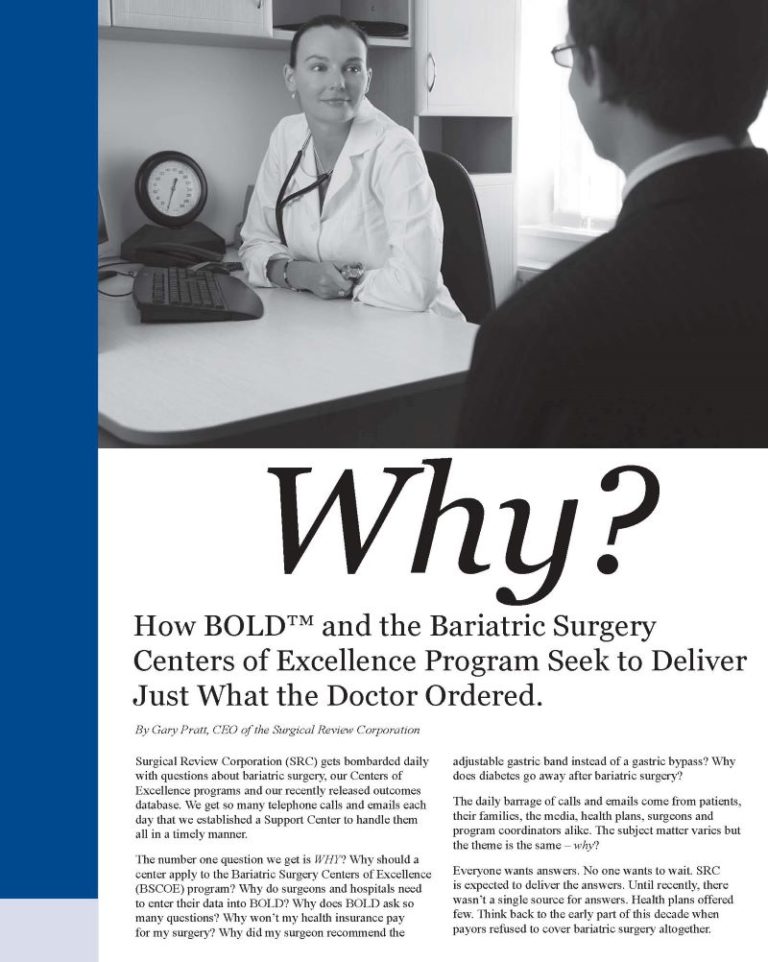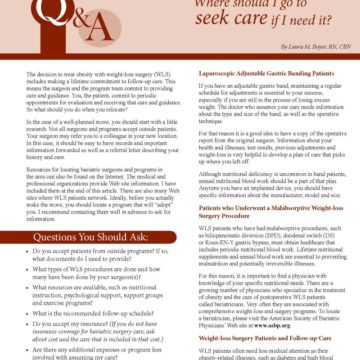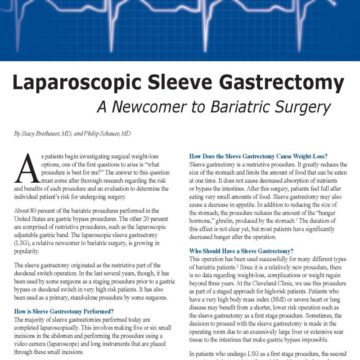Why? How BOLD™and the Bariatric Surgery Centers of Excellence Program Seek to Deliver Just What the Doctor Ordered.


By Gary Pratt, CEO of the Surgical Review Corporation
Fall 2007
Surgical Review Corporation (SRC) gets bombarded daily with questions about bariatric surgery, our Centers of Excellence programs and our recently released outcomes database. We get so many telephone calls and emails each day that we established a Support Center to handle them all in a timely manner.
The number one question we get is WHY? Why should a center apply to the Bariatric Surgery Centers of Excellence (BSCOE) program? Why do surgeons and hospitals need to enter their data into BOLD? Why does BOLD ask so many questions? Why won’t my health insurance pay for my surgery? Why did my surgeon recommend the adjustable gastric band instead of a gastric bypass? Why does diabetes go away after bariatric surgery?
The daily barrage of calls and emails come from patients, their families, the media, health plans, surgeons and program coordinators alike. The subject matter varies but the theme is the same – why?
Everyone wants answers. No one wants to wait. SRC is expected to deliver the answers. Until recently, there wasn’t a single source for answers. Health plans offered few. Think back to the early part of this decade when payors refused to cover bariatric surgery altogether. Or remember when several health plans began their own Center of Excellence program with conflicting requirements that created confusion throughout the industry about what excellence actually meant.
There were no answers for patients who wanted to know which centers and surgeons could truly provide optimal care. Few answers existed regarding which bariatric surgery was appropriate based upon the patient’s needs and which pre and post-operative care paths were optimal. Questions continued to mount because no one knew where to go for the answers.
Meanwhile, morbid obesity continued to spiral out of control and without a source for answers, consumer confidence in bariatric surgery waned. Media accounts led the public to believe that bariatric surgery was unsafe and the surgeons were crooks. Were these the answers to be used to characterize the entire industry?
In 2003, the membership of the American Society for Metabolic and Bariatric Surgery (ASMBS) responded flatly with, “NO! Our patients deserve better.” As a result, the SRC, a completely independent organization governed by industry stakeholders and the Bariatric Surgery Centers of Excellence program were founded by bariatric surgeons to provide answers. Answers to questions like:
- What factors distinguish an “excellent” bariatric surgery center? SRC’s Web site lists 10 requirements that must be met. After completing two levels of application, centers and surgeons must pass a site inspection that is considered the most rigorous in the industry.
- Where can patients go for optimal care? SRC’s Web site lists 276 hospitals and 501 surgeons that meet the BSCOE program requirements. The number grows weekly.
- How safe is the surgery? Our centers tout an impressive 0.35 percent 90-day mortality rate (verified by site inspections) – a rate lower than most surgeries and comparable to gallbladder surgery. Hard to believe when you consider just how sick most bariatric surgery patients usually are.
- Has the BSCOE program improved coverage? Some. Last year, Medicare announced that they would provide coverage for bariatric surgery but only if it is performed at an ASMBS BSCOE center or an American College of Surgeons Level 1 center. Other health insurers are starting to come around. Some are now requiring that centers must first be an ASMBS BSCOE before they can become a member of their network. The process has been slow, but SRC is encouraged by recent developments as we continue to work closely with the payors. The excellent work by the surgeons coupled with the ASMBS BSCOE program have been key factors in this progress.
Much progress has been made since this highly successful program began less than three years ago. But many don’t realize that this is only the first step. If SRC’s focus was limited to awarding Centers of Excellence designations, it would fall short of its mission and questions would begin to mount. The BSCOE program answers some of the questions, but the next questions will become more and more complex. Questions such as:
- How do we stratify patient risk factors?
- Which clinical pathways are the most effective?
- How effectively are co-morbidities resolved and durable weight-loss achieved by surgery type?
- What are acceptable outcomes levels, such as mortality and complication rates, to maintain a level of “Excellence?”
- Can payors be convinced that they receive a return on investment if they cover bariatric surgery?
- Are the current BSCOE program requirements suitable for centers to stay excellent in the future?
SRC expects the answers to these and other important questions to come from our recently released Bariatric Outcomes Longitudinal Database (BOLD™). This innovative database will be used to capture detailed information on each patient such as co-morbidities, the type of surgical procedure, adverse events, weight-loss progress and outcomes. All BSCOE program participants are required to report their data and as a result, we expect more than 100,000 patients each year will be entered. BOLD™ is a tool that will be used for improving:
- Patient care: Data from BOLD™ will be provided back to surgeons and their staff so they can learn from the results.
- Coverage: Finally, surgeons will have better data than most payors. Data that will be verified by site inspection.
- Patient Safety: Adverse events will be closely scrutinized.
- Quality: BOLD™ will be used to guide future BSCOE program requirements.
Without a central source for answers, bariatric surgeons were headed into perilous territory. But instead of idly sitting by and becoming a victim, they chose to take charge of the situation and establish a program to provide answers. Those in the industry are starting to notice. Armed with a superior quality program and better data than anyone else in the industry, bariatric surgeons take a giant step closer to being able to answer, “Why?” SRC is simply following doctors’ orders.
About the Author:
Gary Pratt is the Chief Executive Officer of the Surgical Review Corporation. Gary graduated from the University of Tennessee with degrees in marketing and accounting. Mr. Pratt has started seven successful businesses and was a partner in a national accounting firm. He is a proud member of the Obesity Action Coalition.
by Kendall Griffey, OAC Communications Manager Spring 2024 We have officially kicked off Your Weight Matters Regional…
Read Articleby Robyn Pashby, PhD Winter 2024 “No one is ever going to date you if you don’t…
Read Articleby Kendall Griffey, OAC Communications Coordinator Winter 2024 The Obesity Action Coalition’s 12th annual Your Weight Matters…
Read Article









